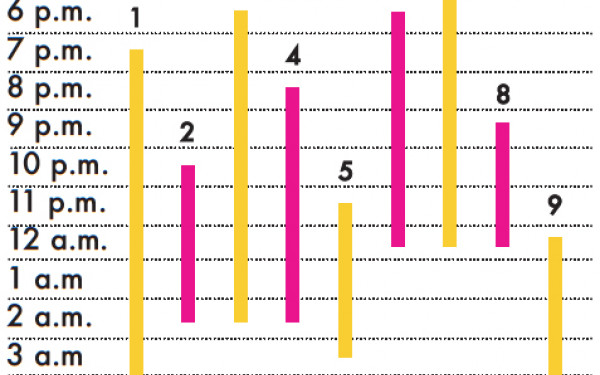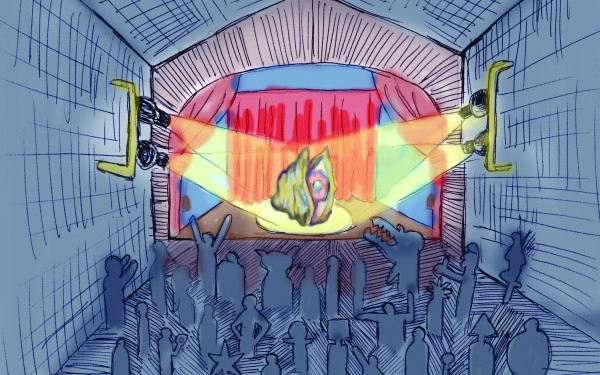Exploring Jewish Culture Through Theatre
My Name Is Asher Plays at the Segal Centre Until October 2
When your passion opposes the expectations of your family and community, it can be hard to live while simultaneously trying to please those around you.
This is the clash that novel turned theatrical performance My Name Is Asher Lev seeks to address.
Written by American author and rabbi Chaim Potok and adapted to theatre by Aaron Posner, the play follows the life of famous artist Asher Lev.
Set in the late 1950’s, My Name is Asher Lev explores Lev’s bumpy road to adulthood in the Hasidic Jewish community of Brooklyn.
Young Asher Lev is a loner with artistic inclinations. His art causes problems with his family and other members of his community when his frenetic need to draw overtakes his interest in studying the Talmud.
Inevitable conflict emerges as Lev’s desire to fulfil his inner potential as an artist contradicts the fidelity to the tradition that his community expects of him.
Director Steven Schipper explained that conflict makes up a good part of the play.
“Potok’s novels transcend the Jewish community. It’s really about the conflict of generations, between father and son—the traditional and the progressive,” he said.
The play in its entirety is set in Asher Lev’s studio in Paris. Walls, windows, and curtains were white—like empty canvases. The set designer, Martin Ferland, chose to do so in order to give the audience an opportunity to visualize the paintings on an empty slate.
Without the need to set the play in a synagogue, the spectator is immediately immersed in the Jewish culture, sharing moments of peace with the Lev family as they sing zmires, songs that are softly sung at the Sabbath table by candlelight.
The play offered up a unique performance aspect, as all the characters were portrayed by only three actors. Ellen David and Alex Poch Goldin played all of the women and men, respectively. Using a variety of accents, Yiddish words, accessories, and costumes not only distinguished one character from another but also gave a feeling of community.
Meanwhile, actor David Reale played the artistically-inclined protagonist.
The clash between Lev and his family is distinct. The boy’s curiosity and lack of moral righteousness ultimately provokes great sadness to his family and pushes him to exile.
“He has a gift that is simultaneously from the masters of the universe and from the other side, both divine and demonic,” said Schipper.
“He has a gift that is simultaneously from the masters of the universe and from the other side, both divine and demonic.“— Steven Schipper, director
If pain and misunderstanding taint this play, as Schipper explained, it also shows that the characters feel a lot of love, empathy and compassion towards each other. Lev’s parents share loving gazes when the father leaves to travel, and Asher is often saturated with kisses and hugs throughout the performance.
“We’ve work very hard to find these moments of joy, humour and lightness in the play,” said Schipper.
Identity is at the center of this play—a theme that many can connect with. Lev exclaims that he “is who he is” and that he “can’t help it!”
“It’s a metaphor,” said Reale. “We are all born with this innate authentic self and the question is: will it survive childhood into adulthood? Will you remain yourself, or will you conform to the needs and wants of those around you?”
My Name Is Asher Lev is a must-see—not only for an awesome immersive experience into Jewish culture, but for a thought-provoking performance on the limit between one’s morality on one hand, and the desire to be oneself on the other.
My Name Is Asher Lev continues until Oct. 2 // Segal Centre // 5170 Côte-Ste-Catherine Rd. // More info





_600_375_90_s_c1.jpg)

